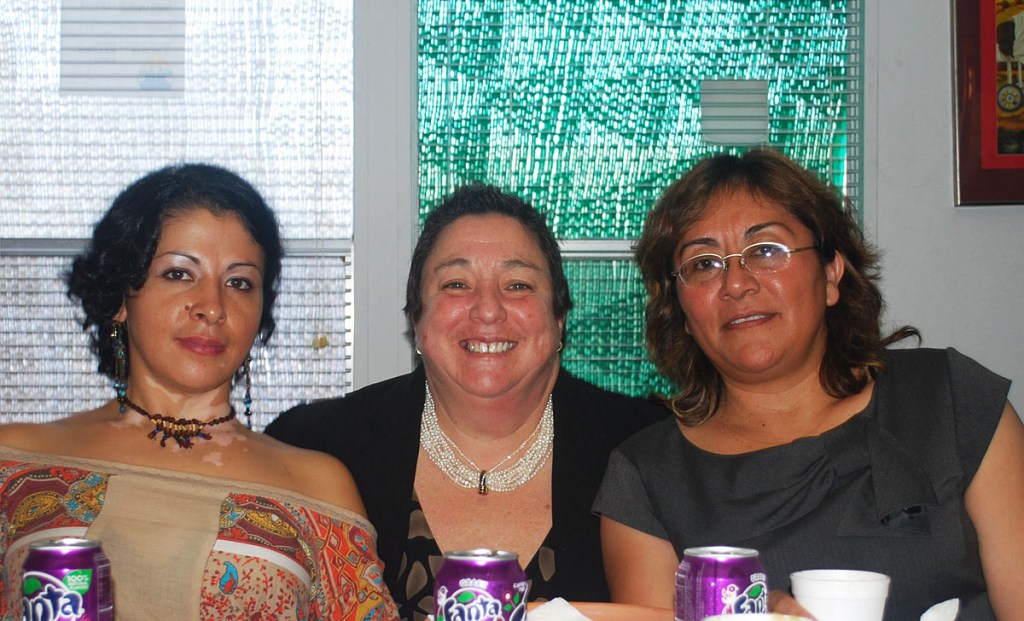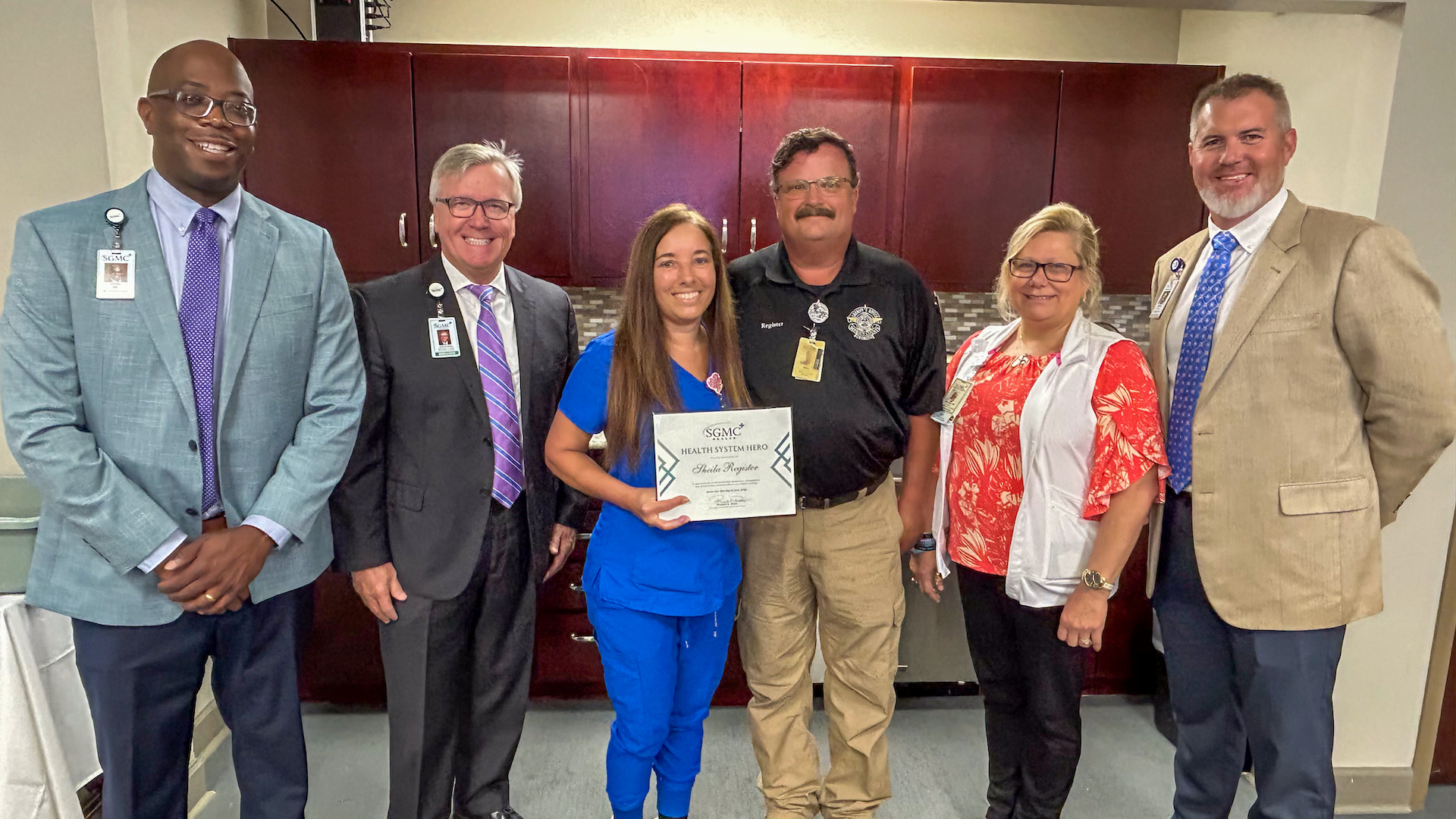Memorial remembers woman who was killed earlier this month
Published 11:51 pm Thursday, October 27, 2011

- Maria Rojas Luberda, Miryam Espinosa-Dulanto, and Alicia Rodriguez, director of Plaza Comunitaria in Statenville. Luberda and Espinosa-Dulanto were to have a reception for an art show. It will now be a memorial.
Next week’s First Friday was supposed to be a night of celebration for Maria Rojas Luberda. Her artwork was scheduled to be a part of “Life Through Our Eyes,” an exhibit during the Downtown Valdosta event.
Instead, the exhibit tragically changed. What was to be a celebration has become a memorial tribute this evening to the life and art of Maria Rojas Luberda, a woman whom friends described as a vibrant woman but who is now listed on a flier for tonight’s event as a “victim of domestic violence.”
Earlier this month, Luberda’s body was discovered in the trailer she shared with her husband, Wayne Dean Luberda. On Oct. 12, 911 received a request for a welfare check at the couple’s Wilkerson Avenue residence. The couple had not been seen for several days; their dogs were reportedly running free, according to reports from the Valdosta Police Department.
During this check, police discovered Maria Luberda’s body. Further investigation revealed her husband was being held in the Lowndes County Jail on charges stemming from unrelated incidents during the prior weekend. Maria is believed to have been killed prior to the incidents leading to Wayne Luberda’s arrest on Oct. 9.
Wayne Luberda is charged with felony murder, tampering with evidence and concealing the death of another in his wife’s death, according to Valdosta police.
One friend says she saw no signs of domestic violence between the couple.
Dr. Miryam Espinosa-Dulanto was scheduled to exhibit her art works with Maria Luberda this month. She has since been instrumental in planning tonight’s memorial tribute at Hildegard’s in Downtown Valdosta.
“Every time that I saw them together they were kind and caring with each other,” Espinosa-Dulanto says. “It was such a shock to learn that Maria had died.”
She was even more
shocked that Wayne has been charged in the death.
“Maria never shared anything that made me believe that she was in trouble and/or something was wrong at home,” Espinosa-Dulanto says.
The two women met in Statenville’s Plaza Comunitaria, a non-profit organization supported by the Mexican Consulate and Georgia Migrant Education. Espinosa-Dulanto volunteers there. She teaches English as a second language to South Georgia’s migrant farm workers and other students wanting to learn English. Maria Luberda was one of her students.
“She was an exceptional student in English, learned so much in so little time,” Espinosa-Dulanto says. “She was also working online to complete her primary and secondary education in Spanish, in a program sponsored by the Mexican Department of Education.”
During the week, Espinosa-Dulanto met with Maria so she could practice her English. A friendship developed.
“We talked about so many things. I learned about Maria’s life in Mexico and I talked about mine in Peru. However, we never stay in the past. Our conversations always were about the current challenges and future dreams. That is how I learned about Maria’s interest for the arts.”
Maria loved to paint. She used acrylics. She painted from memory. Often, she painted scenes from her childhood.
“A beautiful home she saw when she went to the beach or an Indian from a market place, or an angel from the neighborhood church,” Espinosa-Dulanto says of Maria’s work. “Besides being a painter, Maria designed her own clothes and she dreamed that one day she could have her own line.”
Maria Rojas Luberda’s art reflected her energetic and vibrant personality. She worked more than one job. She used her wages to live and save. She sent a portion of her money to her mother in Queretaro, Mexico.
“She was pretty clear that in order to have the life she dreamed, she not only needed to work hard but also to study and to save money,” Espinosa-Dulanto says. “I was able to see Maria’s achievements, her English improved dramatically, and she was in the path of finishing her basic education in Spanish and moving into getting her GED to finally get her dream of going to college. In the meantime, she worked, and worked, and studied. A strong, amazing woman!”
Together, Luberda and Espinosa-Dulanto were scheduled to exhibit their art from Oct. 21 through Nov. 16, with a Nov. 4 reception, at Hildegard’s.
During this evening’s memorial, Father Stanley White is scheduled to speak along with friends sharing memories of Maria’s life.
While the evening will focus on the life of Maria Rojas Luberda, it will also shed light on a little discussed problem facing some Hispanic women in the United States: Not reporting domestic violence for fear their undocumented status will be revealed.
As for Maria, Espinosa-Dulanto did not know her status. Maria did not drive, which could possibly reflect that she was not in a position to get a driver’s license. Maria had contacted an immigration lawyer in Tallahassee.
While Espinosa-Dulanto cannot discuss specifics about Maria’s documentation, she could speak to the situation in general terms.
“Immigrant women, whether in the U.S. legally or illegally, face particular challenges when they find themselves in an abusive relationship,” she says. “Language barriers, cultural barriers, fear of authorities, and threats from abusers to take their children or turn them over to authorities combine to make the already challenging process of escaping abuse exponentially more difficult.”
Given their unfamiliarity with the complexities of the American justice system, “immigrant women often believe that any police officer can whisk them off to jail or deport them due to their status,” Espinosa-Dulanto says. “The reality is that the average police officer or sheriff’s deputy really doesn’t care about immigrant status, nor do they check on it unless there has been some criminal act committed which they are investigating. They care about more immediate issues such as if the individual has warrants for arrest for some crime or infraction like failing to appear for a traffic ticket, or is driving without a valid driver license.”
In the end, no matter the status, no matter the documentation, Espinosa-Dulanto says it boils down to one simple thing.
“Everyone has the right to be safe.”
MEMORIAL
A memorial for Maria Rojas Luberda.
When: 6 p.m. today, Oct. 28.
Where: Hildegard’s, 101 E. Central Ave.
Sponsors: Hildegard’s (Christ the King Episcopal Church), Valdosta State University’s Modern & Classical Languages Department and Women & Gender Studies Program.
Donations can be made to the Maria Rojas Memorial Fund at Ameris Bank.
For more on this story and other local news, subscribe to The Valdosta Daily Times e-Edition, or our print edition.





